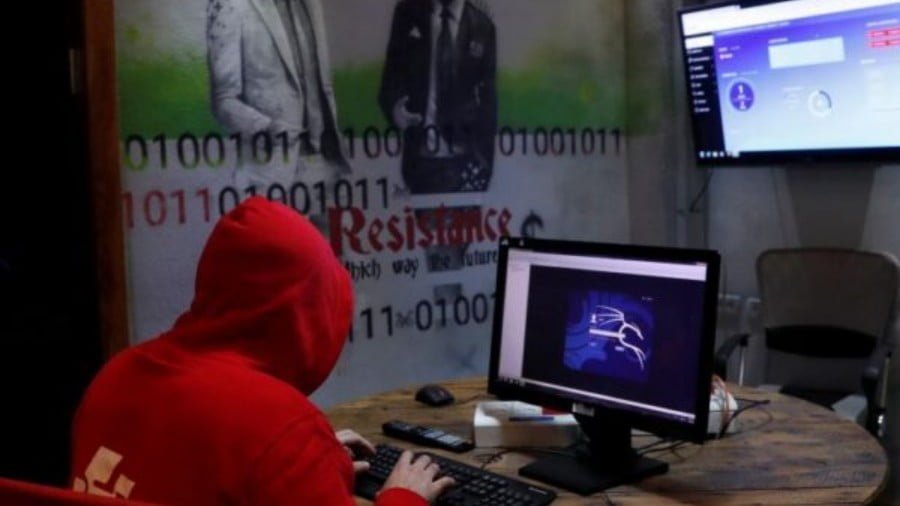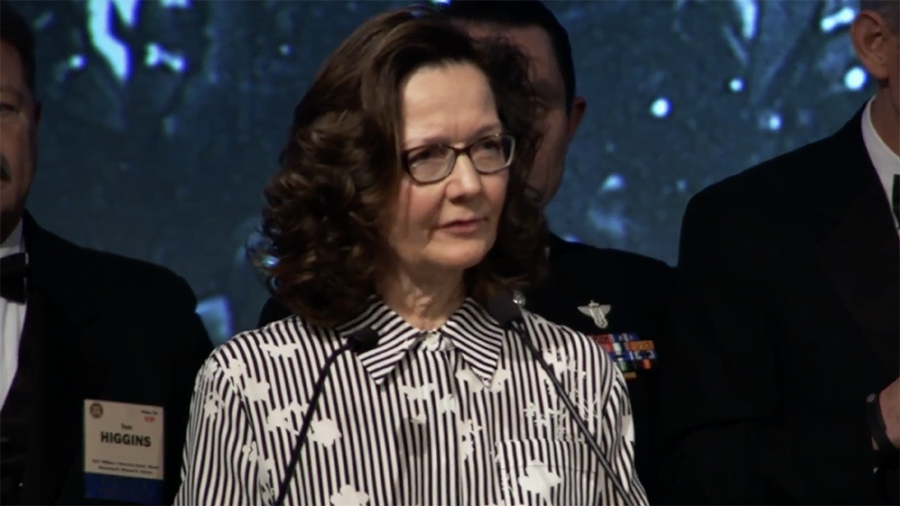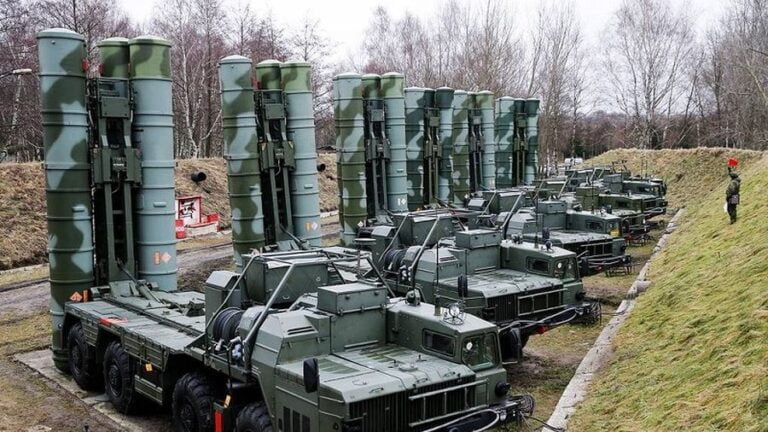Irony and SolarWinds
We live in an age of irony. Even the ironies have ironies.
Take Donald Trump. After four years, there’s not the slightest doubt that the man is an ultra-rightist with pronounced authoritarian tendencies. This is why 81.2 million Americans voted against him: because Joe Biden couldn’t help but be better despite his obvious shortcomings.
But they were wrong. Trump has engaged in the most outrageous bullying of small nations like Iran, Cuba, Nicaragua, and Venezuela. Ironically, however, he’s actually been more cautious when it comes to launching the endless wars that are a Democratic specialty. Now that he’s nearly out the door, Democrats are therefore celebrating by pounding the war drums for a showdown with their all-time favorite enemy, Vladimir Putin.
The pretext is cyber security. The fuss began a couple of weeks ago when a company called FireEye disclosed that it had been hacked. Given that FireEye is a leading Silicon Valley cyber-security firm, this was the equivalent of thieves breaking into a police station and making off with weapons and files. But even more sensational was FireEye’s claim that the break-in was the work of “a nation with top-tier offensive capabilities.” Rather than corporate espionage, it was now a matter of national security.
That was on Dec. 8. Six days later, another high-tech firm, SolarWinds of Austin, Texas, announced that it had been hacked as well and that, worse, the invaders had succeeded in inserting malware into one of the periodic software updates it sends out to clients to help them manage their computer networks. One hack had thus led to as many as 18,000 others, affecting everyone from Fortune 500 companies to government agencies.
This is sensational stuff, and politicians and reporters did not hesitate in pointing the finger. The New York Times immediately charged that the responsible party was “almost certainly a Russian intelligence agency” while Richard Blumenthal, the Democratic senator from Connecticut best known for lying about his Vietnam military service, tweeted that “Trump’s failure of deterrence & continued denials have emboldened Russian hacking & put it at the door of our deepest national secrets.” Once again, Trump had aided America’s number-one foe. Senator Dick Durbin of Illinois, also a Democrat, went Blumenthal one better by telling CNN that “Russia is relentlessly trying to invade America’s cyberspace” and “this is virtually a declaration of war by Russia on the United States.”
Finally, Joe Biden weighed in on Dec. 17 with a vow to impose “substantial costs” on whoever is responsible. “A good defense isn’t enough,” he said; “we need to disrupt and deter our adversaries from undertaking significant cyberattacks in the first place. … I will not stand idly by in the face of cyber assaults on our nation.”
From a hack to preparations for a counterattack in a little over a week – surely this is some sort of land speed record. But two things had gotten lost amid the rush to war. One is that we have no evidence, at least none that’s been made public, that Russia is guilty. The other is that what high-tech corporate officials have said so far about the breach is so contradictory and nonsensical that it’s pretty clear they don’t have a clue as to who’s responsible either.
A fire-breathing statement by Microsoft president Brad Smith is a case in point. Labelling the hack a “nation-state” assault, Smith said that it “requires that we look with clear eyes at the growing threats we face and commit to more effective and collaborative leadership by the government and the tech sector in the United States to spearhead a strong and coordinated global cybersecurity response.”
Does that mean that Silicon Valley is pushing for a global war against hackers not unlike the global war against terrorism in 2001? Sure sounds like it. Then Smith launched into standard Democratic gobble-gobble about Russia, Russia, Russia.
“Russian engineers in 2016,” he went on, “identified weaknesses in password protection and social media platforms, hacked their way into American political campaigns, and used disinformation to sow divisions among the electorate. They repeated the exercise in the 2017 French presidential campaign. As tracked by Microsoft’s Threat Intelligence Center and Digital Crimes Unit, these techniques have impacted victims in more than 70 countries, including most of the world’s democracies. The most recent attack reflects an unfortunate but similarly ingenious capability to identify weaknesses in cybersecurity protection and exploit them.”
All of which couldn’t be easier to pick apart. Smith’s blithe assurance that Russians “hacked their way into American political campaigns” in 2016 is simply not borne out by the evidence. Yes, the malware used to break into the Democratic National Committee looked Russian. But since such malware is widely available on the “dark net,” any number of people can get their hands on it, Russians or individuals pretending to be Russians so as to throw investigators off the scent. It’s rather like an Uzi submachinegun. Just because someone uses it to knock over a bank doesn’t mean he’s from Mossad. Similarly, the fact that someone using seemingly Russian malware to break into the DNC doesn’t mean he’s from the Foreign Intelligence Service known by the Russian acronym SVR,
As for Smith’s claim that Russia then used all those ill-gotten DNC gains to “sow divisions” in American politics, this is one of those unexamined assumptions that everyone uses but no one clearly explains. How does fracturing America apart along political lines benefit Russia? Couldn’t it hurt Moscow just as easily by propelling pro-war forces to the fore? Why should America require Russian assistance in tearing itself apart when a glance at the evening news will tell you that it’s doing a perfectly fine job on its own?
It’s also worth noting that while Shawn Henry, president of CrowdStrike, the company that investigated the DNC breach, told the House intelligence committee in December 2017 that he had evidence that hackers had broken into the committee’s computers, he added that he had no “concrete evidence that data was exfiltrated from the DNC.” So Smith’s claim that Russia used stole data to undermine the election is unproved. As for Smith’s blithe assurance that Russia interference in the 2017 French presidential election, it’s curious that he doesn’t mention the head of the French government’s cyber-security agency, the Agence nationale de la sécurité des systèmes d’information, who concluded a few weeks after the attack that it “was so generic and simple that it could have been practically anyone.”
Who’s guilty of spreading disinformation, Russia or Microsoft? Bizarrely, Smith then goes on to warn about an emerging private-sector threat. Companies known as private sector offensive actors, or PSOA’s, have recently cropped up offering startling new hacking capabilities for a fee. An Israeli company known as the NSO Group, for instance, has developed an app known as Pegasus that it has used to access more than 1,400 mobile devices, among them cells belonging to journalists and human rights activists who had no idea that someone was burrowing into their phones. NSO “is hardly alone,” Smith writes. “Other companies are increasingly rumored to be joining in what has become a new $12 billion global technology market.”
After telling us that only national intelligence agencies have the technical capability to hack into a company like SolarWinds, he thus informs us that a burgeoning private sector does as well. So which is it – public or private? As unsure as we are concerning the DNC in 2016, the field is expanding so rapidly that we can be even less sure about SolarWinds in 2020.
All of which makes people like Blumenthal and Durbin all the more irresponsible. Democrats told Americans so many times that Trump was a tool of an infinitely evil Kremlin that they’ve come to believe their own rhetoric. With the present administration nearly out of the way, they’re celebrating by going on the warpath. Their attitude is straight out of “The Treasure of Sierra Madre”: “Evidence? We ain’t got no evidence. I don’t have to show you any stinking evidence!”
So, yes, Trump is awful. But contrary to everything you’ve heard from liberal-left apologists, that doesn’t mean his opponents are any better. On the foreign front, Democrats may actually be worse in terms of sheer demagoguery and recklessness. While voting for the lesser evil, Americans may have wound up with one that in certain respects is even greater. How much more irony like this can we stand?






